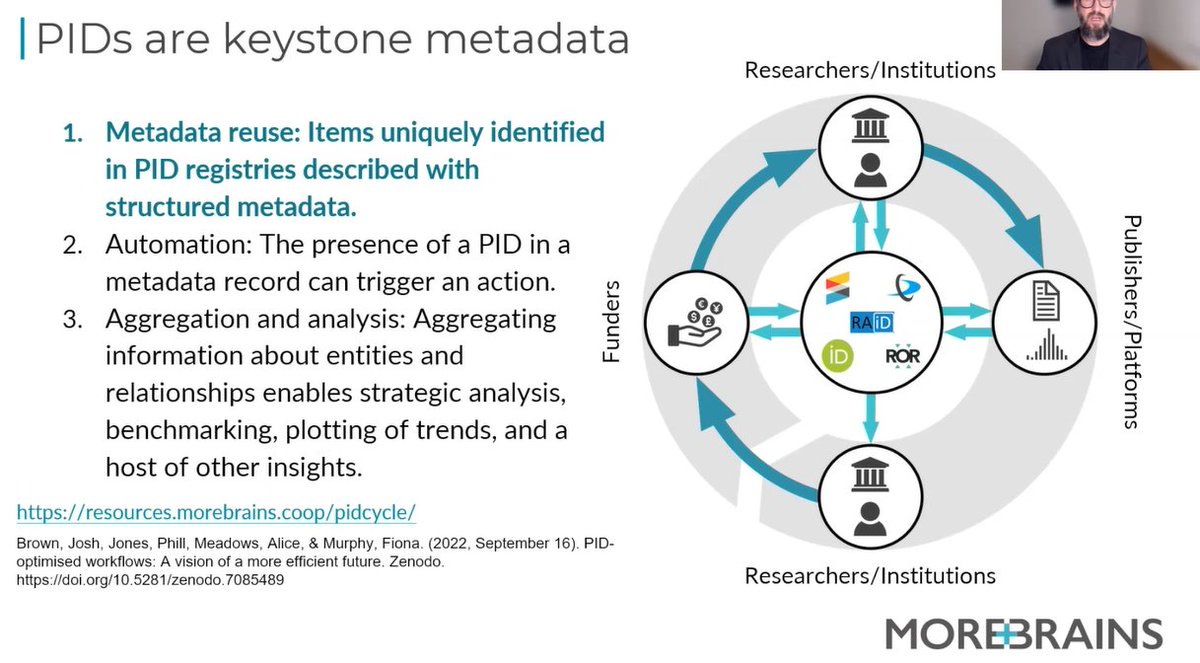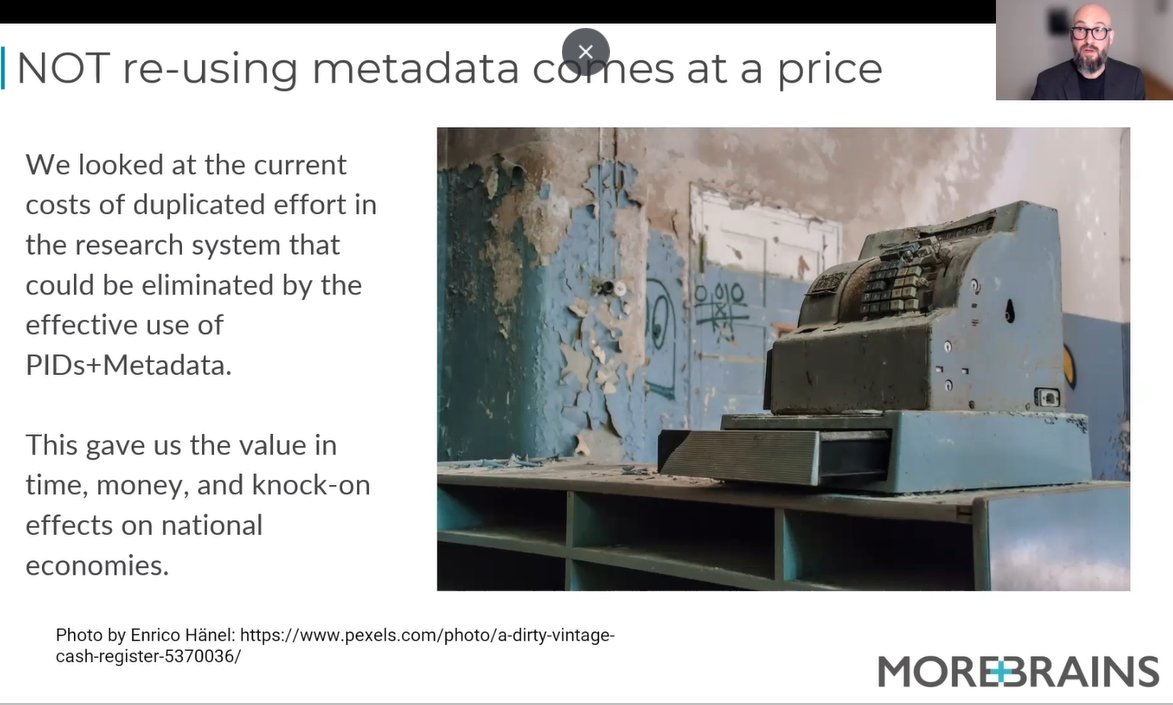@ScholTom explains WP3 #OpeningtheFuture
Pilot case to show that publishers can transition their business to new #OpenAccess models that do not rely on BPCs but on community funding.
Developing online open toolkits for starting & running open access presses #ScalingSmall #OABooks
Pilot case to show that publishers can transition their business to new #OpenAccess models that do not rely on BPCs but on community funding.
Developing online open toolkits for starting & running open access presses #ScalingSmall #OABooks

@CEUPress and @LivUniPress made #OpeningtheFuture a reality! And libraries of all sizes have joined the membership scheme, enabling library funds to go further: achieving the dual objectives of increasing collections and supporting #OpenAccess.
#ScalingSmall #OABooks
#ScalingSmall #OABooks

Library members pay a small annual fee to get DRM-free, unlimited access to a publisher’s backlist; membership revenue is used to produce new frontlist monographs which are #OpenAccess to anyone in the world!
#OpeningtheFuture #ScalingSmall #OABooks
#OpeningtheFuture #ScalingSmall #OABooks

As membership grows more books can be published #OA &/or the cost of membership can be reduced.
Fees are scaled to institution size so that costs are transparent, fair, & equitable.
The backlist is an incentive for libraries to join, but they "stay for the #OA"
#ScalingSmall
Fees are scaled to institution size so that costs are transparent, fair, & equitable.
The backlist is an incentive for libraries to join, but they "stay for the #OA"
#ScalingSmall
From the library perspective, having upfront access to content makes it easier to get sign-off from budget-holders, and to redirect 'content budget' funds to 'open access budget' funds.
#ScalingSmall #OABooks
#ScalingSmall #OABooks
@tweeterbarr speaks to how traditional academic libraries 'balance the books' and use their budgets - there is often no OA Fund, particularly for for more teaching-focussed institutions; money has to be moved from elsewhere
#ScalingSmall #OABooks
#ScalingSmall #OABooks
UK Research Library budgets are made up of different 'pots' and there is little 'spare money' to experiment particularly as e-first policies are placing more pressure on budgets because e-books & e-textbooks are fundamentally more expensive!
#ScalingSmall #OABooks #ebookSOS
#ScalingSmall #OABooks #ebookSOS

Moving Library funds to support innovative #OpenAccess models is possible but it needs to be tied in & linked to broader Library policies (eg. #OpenResearch strategies) as well as delivering a product or service to the institution
#ScalingSmall #OABooks
#ScalingSmall #OABooks

Expanding the #OA budget & realigning spend away from traditional acquisitions processes takes time & the bigger research libraries (eg @RL_UK libraries) have to lead the way; demonstrate 'proof of concept' & scalability of community funding schemes for #OABooks
#ScalingSmall
#ScalingSmall

Gillian Daly of @SCURLScottish & @ScotUniPress is giving insights into the publisher perspective; making the shift to #OpenAccess has to be clear & cost-effective for both publishers & institutions so that researchers can meet funder-requirements for OA
#ScalingSmall #OABooks
#ScalingSmall #OABooks
@SCURLScottish @ScotUniPress If we move away from the BPC model, then we need to know where the money is coming from in order to pay for the expert staff, technology & infrastructure involved in scholarly publishing - unit costs are a reality even for non-profit publishers
#ScalingSmall #OABooks
#ScalingSmall #OABooks
Scottish Universities have the opportunity to support @SCURLScottish & @ScotUniPress to move in the direction of sustainable, equitable funding for #OpenAccess that doesn't rely on per-unit pricing models - it has to be a collaborative approach.
#ScalingSmall #OABooks
#ScalingSmall #OABooks
@SCURLScottish @ScotUniPress Is library sponsorship / membership the way forward for #OpenAccess publishing, or is the future of #OA contingent on bringing publishing back into the academy?
#ScalingSmall #OABooks
#ScalingSmall #OABooks
Gillian Daly coins the phrase "BPC Guilt" - @ScotUniPress aims long-term to move away from BPC or per-unit costing models because they recognise that they are inherently inequitable (only those who can afford them will be able to publish) #ScalingSmall #OABooks
• • •
Missing some Tweet in this thread? You can try to
force a refresh

 Read on Twitter
Read on Twitter












